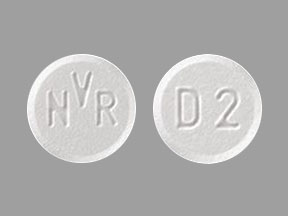Afinitor Disperz Interactions
There are 561 drugs known to interact with Afinitor Disperz (everolimus), along with 8 disease interactions, and 2 alcohol/food interactions. Of the total drug interactions, 183 are major, 366 are moderate, and 12 are minor.
- View all 561 medications that may interact with Afinitor Disperz
- View Afinitor Disperz alcohol/food interactions (2)
- View Afinitor Disperz disease interactions (8)
Most frequently checked interactions
View interaction reports for Afinitor Disperz (everolimus) and the medicines listed below.
- amitriptyline
- Austedo (deutetrabenazine)
- Bactrim DS (sulfamethoxazole / trimethoprim)
- Biktarvy (bictegravir / emtricitabine / tenofovir alafenamide)
- Cayston (aztreonam)
- clobazam
- Copaxone (glatiramer)
- Corlanor (ivabradine)
- Creon (pancrelipase)
- Cymbalta (duloxetine)
- Diacomit (stiripentol)
- Diflucan (fluconazole)
- Dyanavel XR (amphetamine)
- Effexor XR (venlafaxine)
- Eloctate (antihemophilic factor)
- enalapril
- Epidiolex (cannabidiol)
- Esbriet (pirfenidone)
- Exforge HCT (amlodipine / hydrochlorothiazide / valsartan)
- Felbatol (felbamate)
- Fintepla (fenfluramine)
- Gleevec (imatinib)
- Hemlibra (emicizumab)
- Inderal (propranolol)
- Jynarque (tolvaptan)
- Lasix (furosemide)
- methotrexate
- Oncovin (vincristine)
- Plegridy (peginterferon beta-1a)
- Sucraid (sacrosidase)
Afinitor Disperz alcohol/food interactions
There are 2 alcohol/food interactions with Afinitor Disperz (everolimus).
Afinitor Disperz disease interactions
There are 8 disease interactions with Afinitor Disperz (everolimus) which include:
- liver disease
- vaccination
- renal disease
- hematologic abnormalities
- blood glucose
- cholesterol
- Infections
- wound complication
More about Afinitor Disperz (everolimus)
- Afinitor Disperz consumer information
- Compare alternatives
- Pricing & coupons
- Drug images
- Side effects
- Dosage information
- During pregnancy
- Generic availability
- Drug class: mTOR inhibitors
- Breastfeeding
- En español
Related treatment guides
Drug Interaction Classification
| Highly clinically significant. Avoid combinations; the risk of the interaction outweighs the benefit. | |
| Moderately clinically significant. Usually avoid combinations; use it only under special circumstances. | |
| Minimally clinically significant. Minimize risk; assess risk and consider an alternative drug, take steps to circumvent the interaction risk and/or institute a monitoring plan. | |
| No interaction information available. |
See also:
Further information
Always consult your healthcare provider to ensure the information displayed on this page applies to your personal circumstances.


